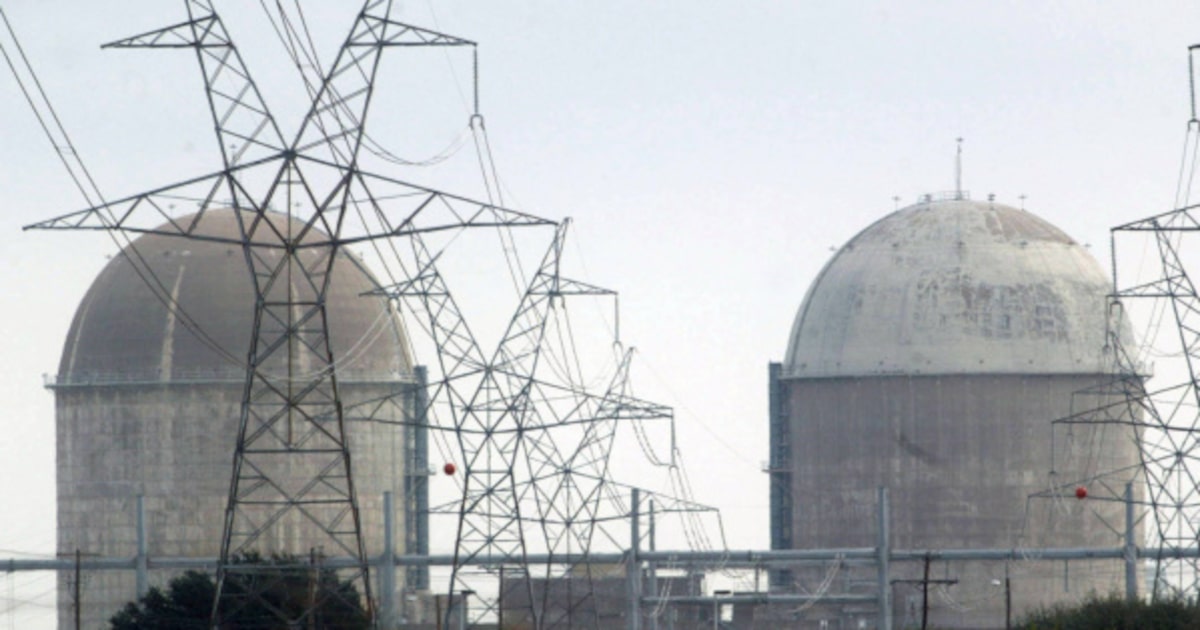AUSTIN — Texas is poised to be the nation’s leader in nuclear energy in what some are calling a “nuclear renaissance,” according to energy industry leaders, state government officials and Texas lawmakers who gathered last week at the Texas Nuclear Summit.
Momentum behind the nuclear power industry in Texas has seen sustained growth in the past 12 months. But several obstacles — chiefly financing, federal government hurdles and an atrophied supply chain — continue to slow rapid deployment of new nuclear power plants in the state.
That did little to dampen spirits in Austin, where optimism reigned at the energy conference put on by a nuclear power advocacy group with strong ties to Texas’ political leaders.
“I strongly believe Texas could be the Silicon Valley of energy,” said John Hopkins, the CEO of NuScale, an Oregon-based reactor company that is the only public company with regulatory approval of a small modular nuclear reactor. “I heard somebody say that, and we believe it.”
Related
A year ago, Gov. Greg Abbott’s office released a research report that recommended the state invest in rebuilding a nuclear industry in Texas. Earlier this year, lawmakers passed legislation that created a $350 million grant program for nuclear projects in Texas.
Texas A&M University also moved forward with opening up a site at its RELLIS Innovation and Tech Campus in Bryan to become a nuclear proving ground. At Abilene Christian University, the university and a private company are working toward building the nation’s first research reactor in decades.
“The time is now for Texas to lead the way for a nuclear power renaissance in the United States of America,” Abbott said Friday in an address to a conference room full of nuclear industry leaders, academics and engineers. “To power our future, Texas must be the epicenter for nuclear power generation.”
Despite progress, an air of urgency has crept into the nuclear industry after decades of inaction. It was present at the conference in the form of various branded merchandise bearing the slogan, “Time to build.”
Only three nuclear reactors have come online since 2000, and the most recent, Georgia’s Vogtle Electric Generating Plant, was plagued with delays and cost overruns that did little to assuage any skepticism of the industry.
“Vogtle was a debacle,” said Toby Neugebauer, CEO of the Texas-based nuclear company Fermi America, which went public this year and was co-founded by former Gov. Rick Perry.
Large reactors like the two completed at the Vogtle plant can each provide about 1,000 megawatts of power — enough electricity to power at least 250,000 homes. Texas has four such reactors on the ERCOT grid, including two at the Vistra-owned Comanche Peak plant about an hour’s drive southwest of Fort Worth.
But nuclear experts see smaller, mass-produced reactors as the future of nuclear energy in the U.S. NuScale, for instance, is marketing an 80 megawatt reactor it says can be scaled to meet the electricity demands of any large industrial user or AI data center.
Texas state Reps. Cody Harris, R-Palestine, and Drew Darby, R-San Angelo, said that it was incumbent on the companies to coalesce around a project that makes sense to give lawmakers something to show when the state Legislature reconvenes in 2027. Harris was the author of House Bill 14, which created the $350 million Texas Advanced Nuclear Development Fund.
Harris said he wants HB 14 to be the beginning of a larger effort to promote nuclear energy in Texas. He initially asked for $2 billion.
The bill had bipartisan support. Darby said Friday the problem was not convincing Democrats; many on the left support nuclear power as a clean, reliable source of energy. Darby said he faced opposition from Republican lawmakers opposed to using any taxpayer money on anything other than property tax relief.
“They just don’t want to spend the money,” Darby said. “In the end, we were faced with that dilemma, mainly in our own party, that they just opposed it on fiscal reasons. It was just too much money.”
Failure to make progress would undermine any future effort from state lawmakers to provide any further government incentives to the industry when the Legislature reconvenes in 2027, Harris said.
“If you guys haven’t shown that we were right and that you are ready, and you’ve applied for that funding and it’s been allocated, then we’ve effectively cut ourselves off at the knees when we go back next session,” he said.
“If you can demonstrate it works and you’re making progress, then … my jobs are a heck of a lot easier trying to convince our colleagues, ‘Let’s put more money into this,’” Darby added.
Jordan Robison, vice president of engineering and program management at Natura Resources, said success for his company, which is developing a research reactor at Abilene Christian University, would be switching on their reactor in 2027 and breaking ground on two other sites in Texas.
